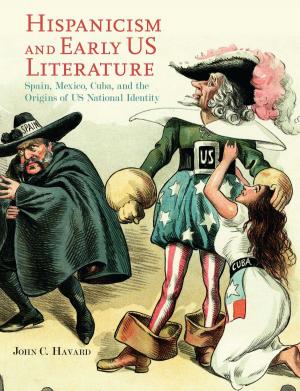The Perfect Lion
The Life and Death of Confederate Artillerist John Pelham
Nonfiction, History, Americas, United States, Civil War Period (1850-1877), Biography & Memoir, Historical| Author: | Jerry H. Maxwell | ISBN: | 9780817385484 |
| Publisher: | University of Alabama Press | Publication: | April 28, 2011 |
| Imprint: | University Alabama Press | Language: | English |
| Author: | Jerry H. Maxwell |
| ISBN: | 9780817385484 |
| Publisher: | University of Alabama Press |
| Publication: | April 28, 2011 |
| Imprint: | University Alabama Press |
| Language: | English |
The South has made much of J. E. B. Stuart and Stonewall Jackson, but no individual has had a greater elevation to divine status than John Pelham, remembered as the “Gallant Pelham.” An Alabama native, Pelham left West Point for service in the Confederacy and distinguished himself as an artillery commander in Robert E. Lee’s Army of Northern Virginia. Lee is reported to have said of him, “It is glorious to see such courage in one so young!” Blond, blue-eyed, and handsome, Pelham’s modest demeanor charmed his contemporaries, and he was famously attractive to women. He was killed in action at the battle of Kelly’s Ford in March of 1863, at twenty-four years of age, and reportedly three young women of his acquaintance donned mourning at the loss of the South’s “beau ideal.”
Maxwell’s work provides the first complete, deeply researched biography of Pelham, perhaps Alabama’s most notable Civil War figure, and explains his enduring attraction.
The South has made much of J. E. B. Stuart and Stonewall Jackson, but no individual has had a greater elevation to divine status than John Pelham, remembered as the “Gallant Pelham.” An Alabama native, Pelham left West Point for service in the Confederacy and distinguished himself as an artillery commander in Robert E. Lee’s Army of Northern Virginia. Lee is reported to have said of him, “It is glorious to see such courage in one so young!” Blond, blue-eyed, and handsome, Pelham’s modest demeanor charmed his contemporaries, and he was famously attractive to women. He was killed in action at the battle of Kelly’s Ford in March of 1863, at twenty-four years of age, and reportedly three young women of his acquaintance donned mourning at the loss of the South’s “beau ideal.”
Maxwell’s work provides the first complete, deeply researched biography of Pelham, perhaps Alabama’s most notable Civil War figure, and explains his enduring attraction.















